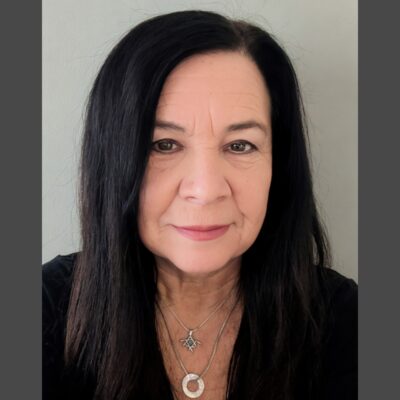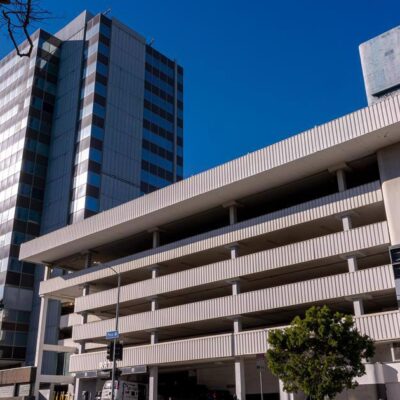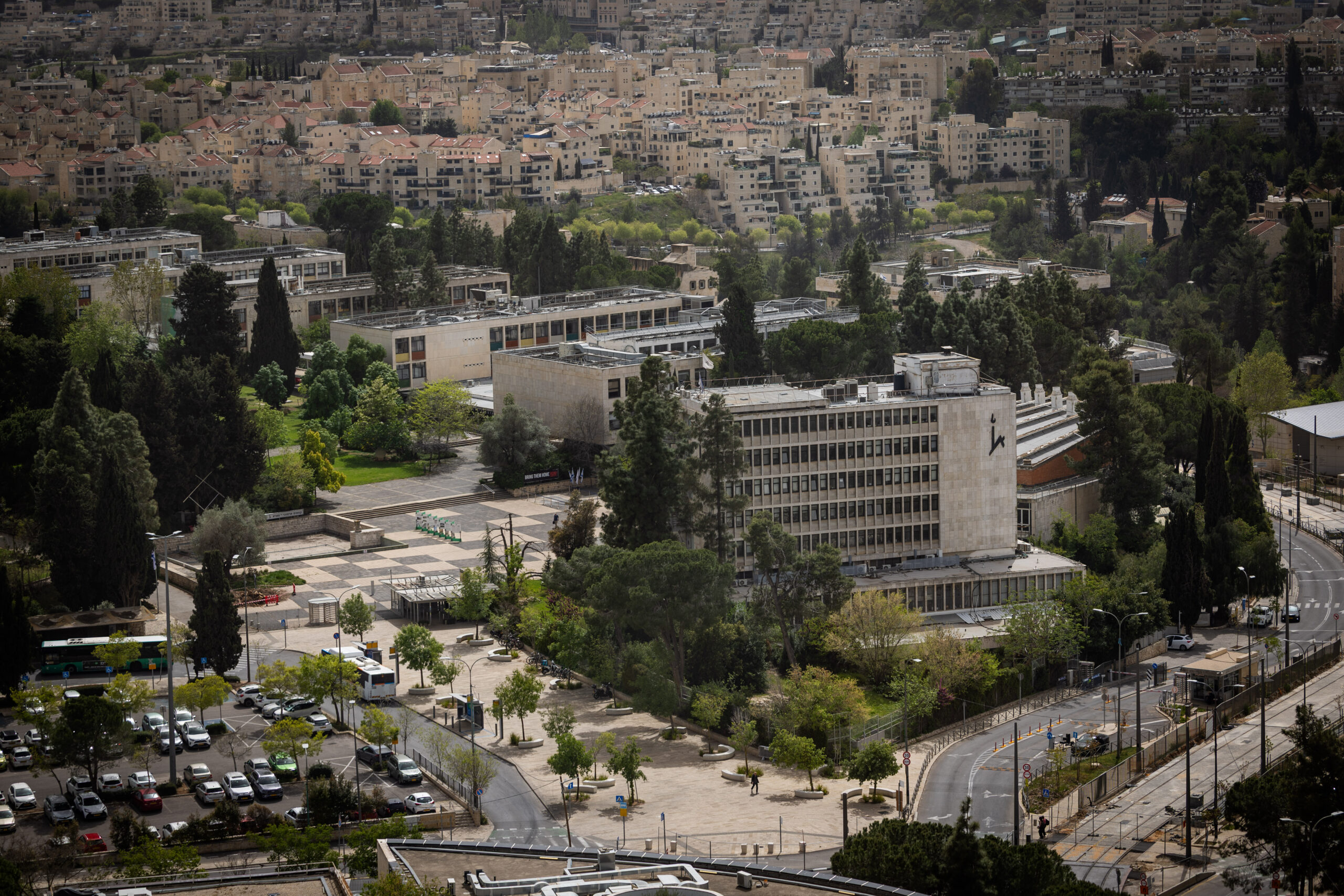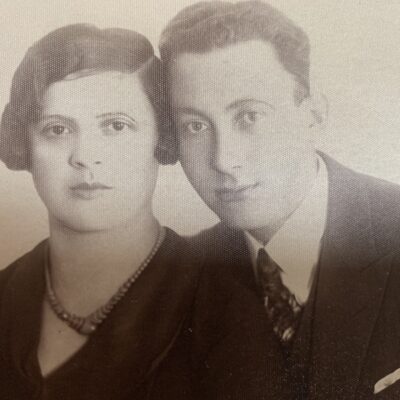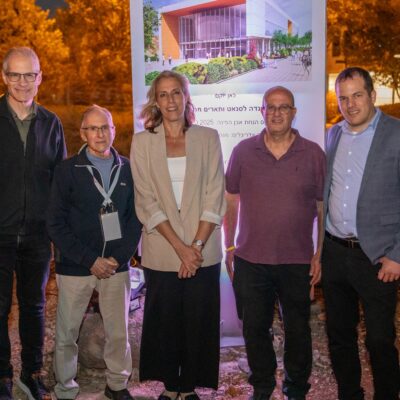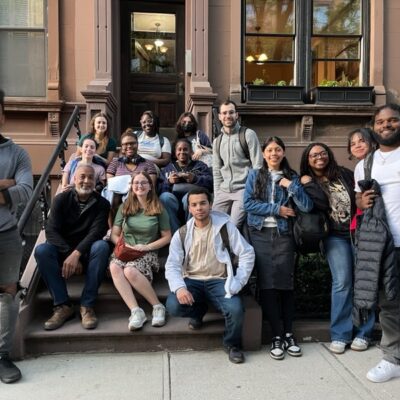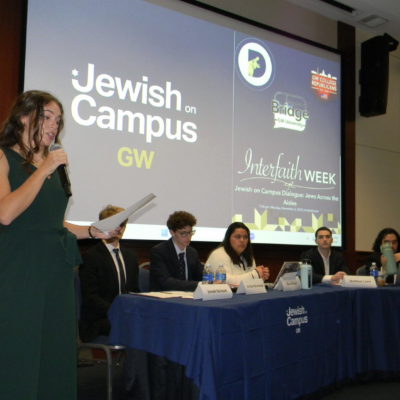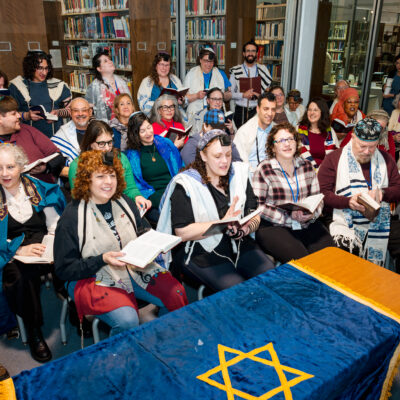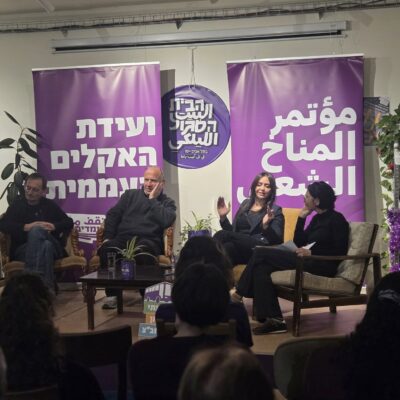LOCAL IS GLOBAL
Bloomberg’s $27.8 million project to boost Israeli cities hit hardest by war is ‘up and running’
Bloomberg Philanthropies initiative looks to build up the capacities of 65 Israeli cities and towns, seeing municipal governments as the key to the country's recovery post-Oct. 7

Courtesy/Kfir Ziv/Bloomberg Philanthropies
Michael R. Bloomberg meets with mayors at the at the Bloomberg Sagol Center for City Leadership at Tel Aviv University in Tel Aviv on April 18, 2024.
Bloomberg Philanthropies has committed $27.8 million (NIS 100 million) toward its efforts to rehabilitate and improve the hardest-hit areas in Israel following the Oct. 7 terror attacks and the past 14 months of war in Gaza and Lebanon by building up the municipal governments within those areas through so-called “innovation hubs.”
This plan, dubbed the “Bloomberg Philanthropies Regional Initiative,” was first announced in the spring, when former New York City Mayor Michael Bloomberg visited Israel, meeting with Israeli mayors and other officials.
“The Bloomberg Philanthropies Regional Initiative, announced in April, is now up and running,” James Anderson, who leads the Government Innovation program at Bloomberg Philanthropies, told eJewishPhilanthropy. “We’re beginning to support impacted municipalities with the support they will need to recover and rebuild stronger than ever.”
The $27.8 million pledge was first reported by Israel’s Ynet news. The funding will support 65 cities and towns in hard-hit areas of southern and northern Israel. The funding is intended to boost municipal governments through capacity building and other development projects.
Moshe Davidovich, the mayor of the Mateh Asher region in the Western Galilee, hailed the Bloomberg Philanthropies program, seeing it as a harbinger of better times for his area.
“This has proven the strength of [Israeli] citizens and Diaspora Jewry, in places where the state institutions failed,” Davidovich wrote on Facebook in response to the pledge. “Thanks to Michael Bloomberg and other amazing Zionists, who are opening their hearts and their wallets, I am convinced that we will not only restore the north, but we will lead it to prosperity that it has never seen before.”
Bloomberg Philanthropies, which focuses much of its efforts on cities and municipal governments, said its “regional innovation hubs” plan is meant to help the communities “rebuild stronger” by making the local governments more efficient, better able to meet the needs of residents and more attractive to private enterprise.
“They’ll make us better, more effective, more focused. They have the highest quality tools available, with lecturers from all around the world,” Davidovich told eJP. “What could be better?”
Davidovich, whose region joined the program when it first launched, said that through the initiative Bloomberg Philanthropies will provide his regional council, which is responsible for kibbutzim, moshavim and towns around the city of Nahariya, with an outside consultant who will work with his municipality for the next two years.
“This will help us bring back eight displaced communities, to help prevent people from leaving, to make our systems work better,” Davidovich said. “This is a divine gift.”
Separate from this endeavor, days after the Oct. 7 terror attacks, Bloomberg announced that he would match donations to the Magen David Adom ambulance service, eventually giving $44 million to the organization, for which he was honored earlier this year.
Bloomberg laid out these plans when he visited Israel in April, holding a roundtable discussion with dozens of Israeli mayors and holding meetings with U.S. Ambassador to Israel Jack Lew and other officials.
In his meeting with the Israeli mayors, Bloomberg stressed his personal experiences leading a city after a traumatic terror attack. “I was elected mayor of New York just seven weeks after the terrorist attacks of 9/11… and I learned very quickly that mayors have a unique opportunity to be beacons of hope – and to rally people behind a shared vision that unites people of all backgrounds and all religions,” he said. “They also have a powerful role to play in helping communities recover and rebuild… and to show residents that even in a crisis, government can work for them and get things done… whether that’s building infrastructure or getting families back in their homes and schools. The work of rebuilding must include rebuilding trust in government – and confidence in the future – and that starts at the local level.”
Through the regional innovation hubs, Bloomberg Philanthropies said it will connect these areas with teams of experts and “dispatch fellows and project managers into city halls to support priority initiatives, reporting directly to mayors,” to support recovery and resiliency efforts.
The charity said it will also provide the hubs with “state-of-the-art talent, capacity, and capabilities in data science, the digitization of public services, program design, and collaboration management.”
Bloomberg Philanthropies said it will also connect the hubs to its local partners, including Tel Aviv University, the Peres Center for Peace and Innovation, the Yad Hanadiv Foundation and the Israeli for-profit municipal support firm Civix, as well as the Sagol Family.
Bloomberg Philanthropies first started operating in Israel approximately 20 years ago. That expanded in 2015 when it started bringing Israeli mayors to Harvard University for a mayoral leadership program. In 2022, its work in Israel grew further when Bloomberg Philanthropies and the Sagol Family jointly launched an eponymous Center for City Leadership at Tel Aviv University, which has trained and worked with 40 Israeli mayors and 80 municipal employees so far. Bloomberg Philanthropies has also provided so-called “innovation teams” to Tel Aviv, Jerusalem and Beersheva, where they have helped the municipalities develop new and improve existing city programs. Last year, the organization expanded this innovation effort further with a program HaZira, or “the scene,” in cooperation with the Peres Center for Peace and Israel’s Interior Ministry, bringing together dozens of mayors and city employees from across Israel to develop new municipal programs.
“Outside of the United States, we do more work with mayors in Israel than in any other country in the world – and that’s something that I know would’ve made my mother and father very proud,” Bloomberg said in the spring.

 Add EJP on Google
Add EJP on Google

